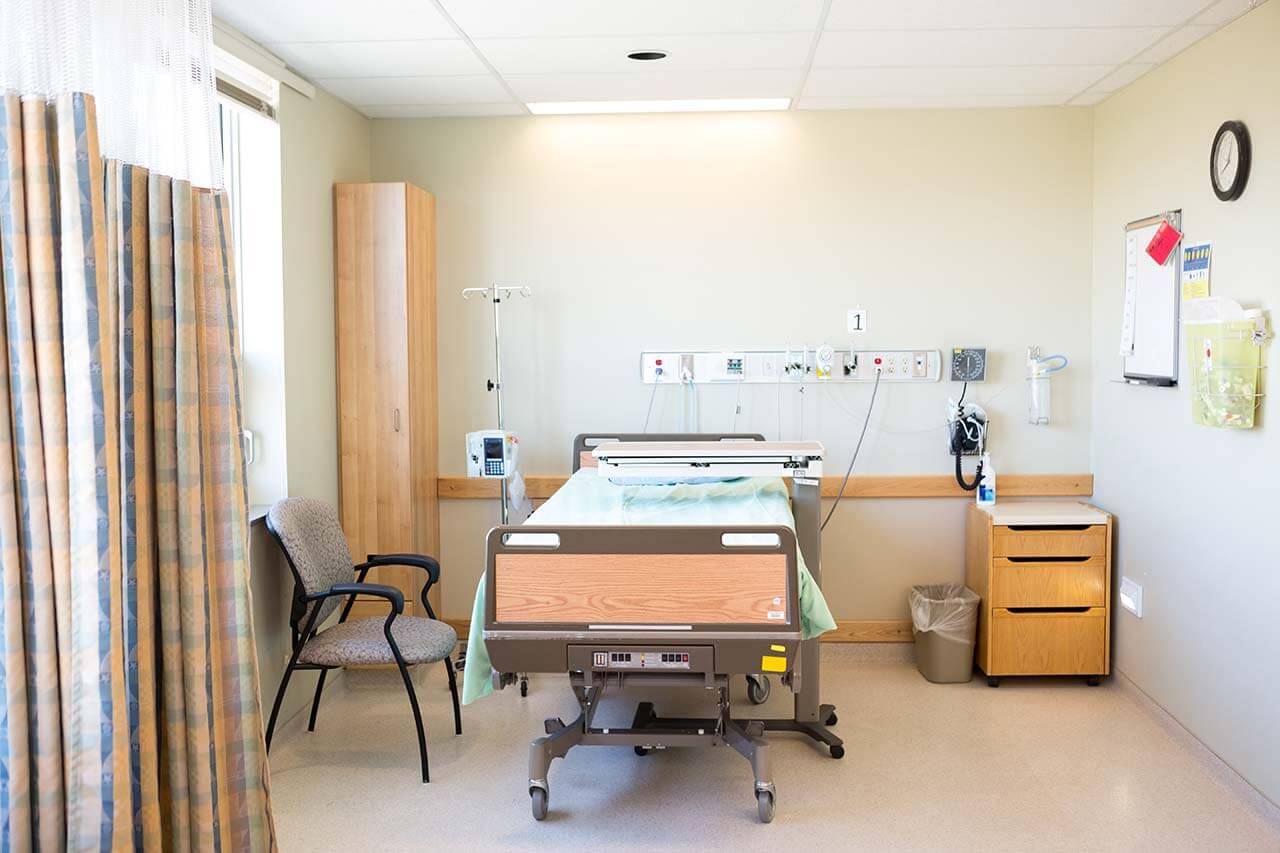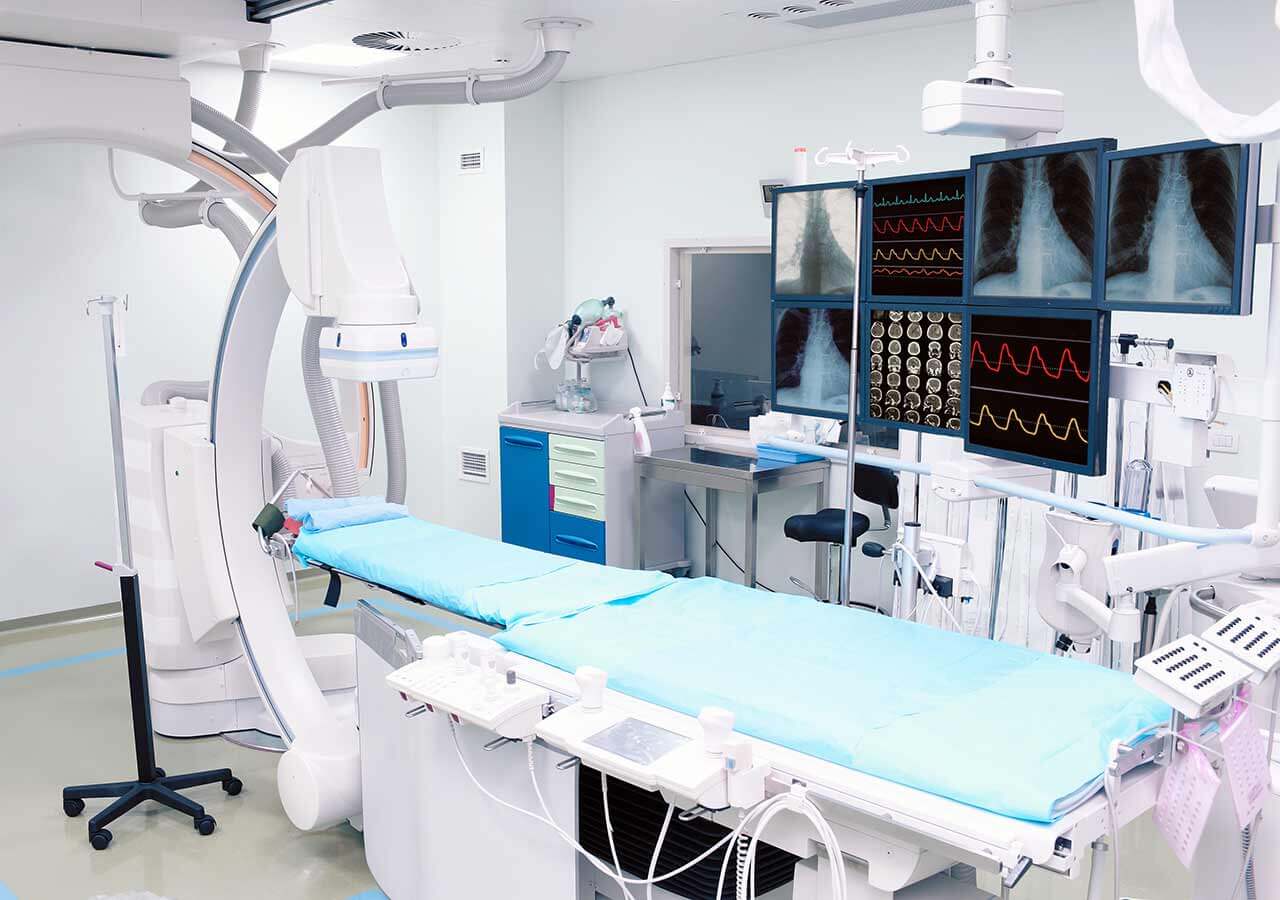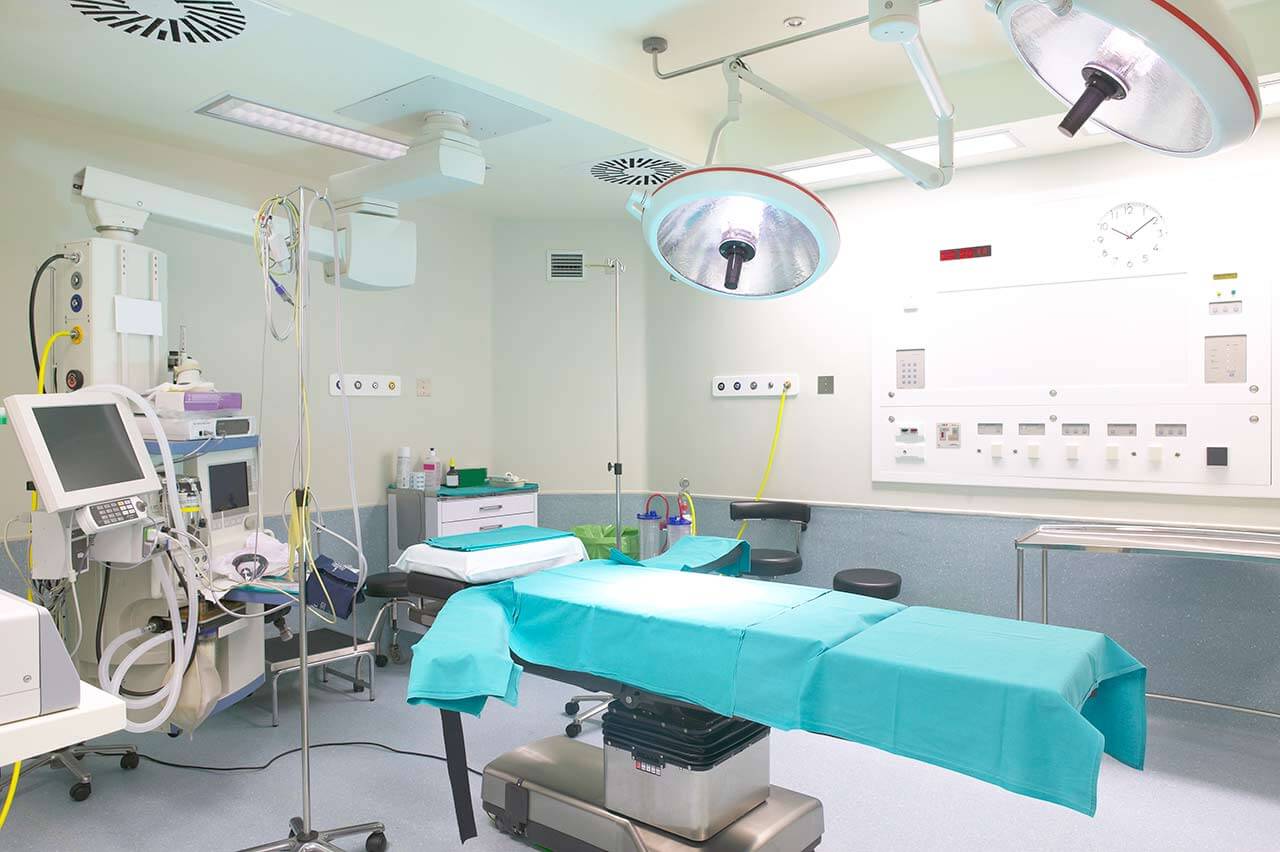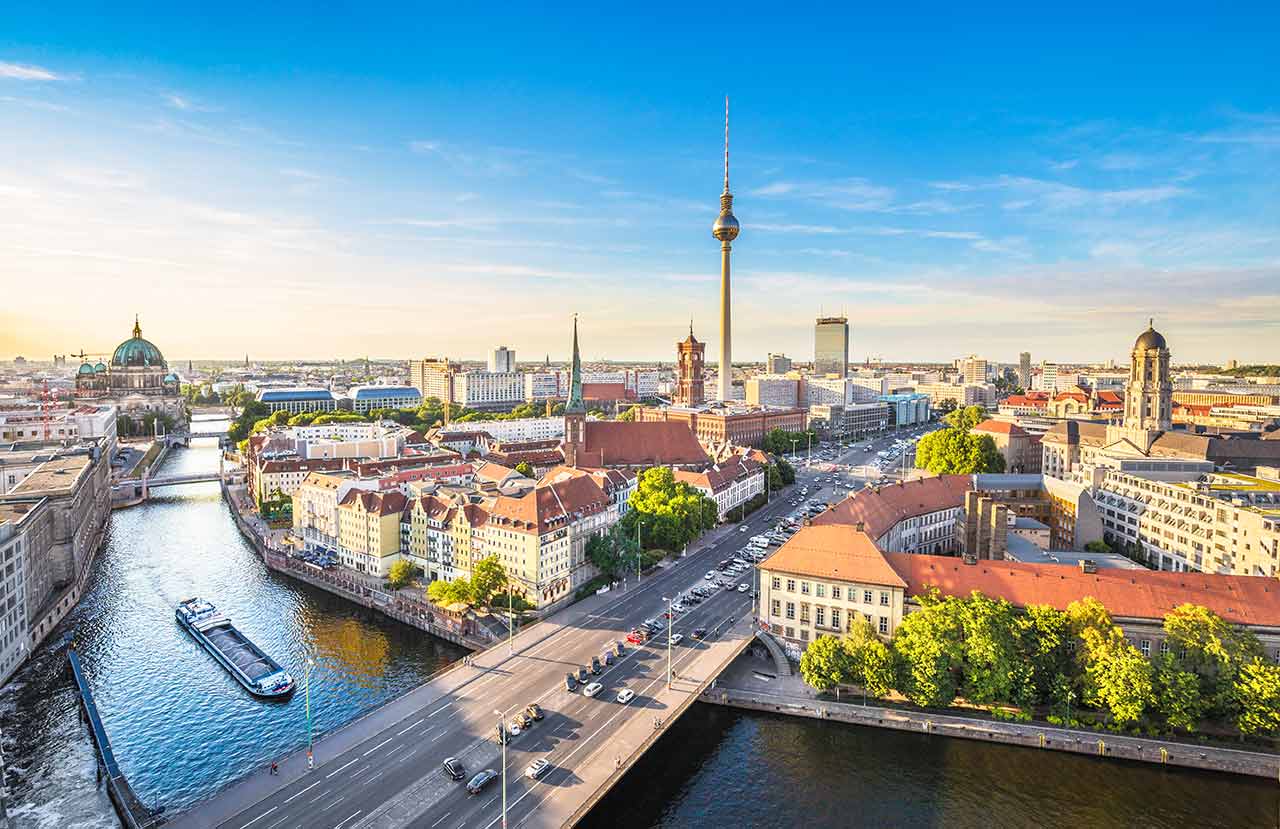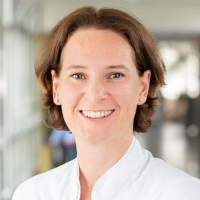
The program includes:
- Initial presentation in the clinic
- clinical history taking
- review of medical records
- physical examination
- urological examination
- laboratory tests:
- complete blood count
- general urine analysis
- biochemical analysis of blood
- inflammation indicators (CRP, ESR)
- indicators blood coagulation
- tumor marker, PSA
- ultrasound of the urogenital system
- CT/MRI of the abdomen and pelvis
- preoperative care
- percutaneous drainage of the abscess
- symptomatic treatment
- control examinations
- the cost of essential medicines and materials
- nursing services
- full hospital accommodation
- explanation of future recommendations
Required documents
- Medical records
- US scan, MRI/CT scan (if available)
Service
You may also book:
 BookingHealth Price from:
BookingHealth Price from:
About the department
The Department of Urology at the Vivantes Humboldt Hospital offers the whole range of urological diagnostics and treatment. It specializes in surgical and conservative treatment of urological oncological diseases, urolithiasis and benign prostatic hyperplasia as well as urinary incontinence. Doctors of the department have an exceptional experience in open surgery, as well as minimally invasive and endoscopic surgical methods. The head of the department is Prof. Dr. med. Laura-Maria Krabbe.
The department is the center of robotic assisted surgery that uses DaVinci robot. Thanks to modern diagnostic and therapeutic methods, the most gentle and individual treatment is offered here. When conducting surgeries, minimally invasive methods with preservation of organs are preferred.
The range of services of the Department of Urology:
Kidneys:
- Robot-assisted and laparoscopic partial resection of the kidney
- Laparoscopic nephrectomy
- Open surgical partial resection of the kidney and nephrectomy
- Radiofrequency ablation
- Treatment of progressive and metastatic renal cell carcinoma
Bladder
- Transurethral resection of the bladder (also with the help of fluorescence)
- Radical cystectomy with fixation of the site of the ileum to create an artificial bladder (open and robotic intervention)
- Resection of the bladder (open and robotic)
- Chemotherapy
Prostate
- Nerve preserving prostatecticullectomy(open surgical and robotic)
- Laparoscopic lymphadenectomy
- Fusional biopsy of the prostate under the control of MRI or ultrasound
Penis and testicles
- Partial or total penectomy
- Invasive and pelvic lymphadenectomy
- Testicular Removal
- Retroperitoneal lymphadenectomy (open surgical and minimally invasive)
- Chemotherapy and radiation therapy for the treatment of tumors of the penis and testicles
Robotic assisted surgery
- Radical prostatectomy, renal pelvis, partial renal resection, ureter reimplantation, cystectomy, ureter replacement
Treatment of stones
- Extracorporeal shock wave lithotripsy (ESWL)
- Rigid and flexible ureterorenoscopy with laser lithotripsy
- CHNL and mini-CNL
Treatment of disorders of bladder emptying
- TURP
- Holmium laser enucleation of the prostate
- Internal urethrotomy
- Injection of botulinum toxin with a hyperactive bladder
- Bladder enlargement with wrinkling
Treatment of diseases of male genital organs
- Circumcision
- Hydrotherapy
- Schroeder-Essend operation
Reconstructive urology
- Laparoscopic pyeloplasty, laser endopyelotomy
- Implantation of a cavernous body prosthesis (AMS 700)
- Implantation of an artificial sphincter (AMS 800 or Zephyr)
- Urethroplasty using the oral mucosa
Curriculum vitae
Higher Education and Professional Career
- Medical studies, Faculty of Medicine, Westphalian Wilhelms University of Muenster.
- 2010 - 2015 Professional training in Adult and Pediatric Urology, University Hospital Muenster.
- 2013 Research Fellowship in Urology, University of Texas at Dallas, USA.
- 2015 Board certification in Urology.
- 2016 Habilitation in Urology.
- 2016 - 2018 Clinical Fellowship, University of Texas at Dallas, USA.
- 2018 - 2023 Senior Physician, Department of Adult and Pediatric Urology, University Hospital Muenster; Head of the Kidney Tumor Center within the Department of Adult and Pediatric Urology, University Hospital Muenster.
- Since July 2023 Head Physician, Department of Urology, Vivantes Humboldt Hospital Berlin.
Clinical Interests
- Surgical and conservative treatment of urological oncological diseases.
- Urinary tract reconstructive plastic surgery.
- Robotic DaVinci surgeries and open surgical procedures:
- Minimally invasive and open partial nephrectomy for kidney tumors
- Minimally invasive and open nephrectomy for kidney and upper urinary tract tumors
- Minimally invasive prostatectomy for prostate tumors
- Minimally invasive and open cystectomy for bladder tumors
- Minimally invasive pyeloplasty for ureteropelvic junction obstruction
- Minimally invasive and open ureteral reimplantation for ureteral stenosis
- Minimally invasive and open partial bladder resection/bladder diverticulum resection for bladder diverticula
Memberships in Professional Societies
- German Society of Urology (DGU).
- Berlin Urological Society (BUG).
- German Cancer Society (DKG).
- Urological Oncology Working Group (AUO).
- European Association of Urology (EAU).
Photo of the doctor: (c) Vivantes Netzwerk für Gesundheit GmbH
About hospital
An academic clinic of the university medical complex Charité, the Vivantes Humboldt Hospital is one of the largest specialized medical institutions in Berlin. The hospital is famous for its impeccable reputation in the field of traumatology, orthopedics, urology and gynecology, as well as treatment of oncological diseases. Treatment in these fields is performed within the specialized centers at a hospital of national importance.
The Humboldt Hospital has 24 medical departments and about 700 beds at its disposal. Every year, a team of 250 doctors treats about 65,000 patients. The hospital combines high medical qualifications and modern technologies: urologists-surgeons employ operating system Da Vinci, Holmium laser enucleation of the prostate and therapeutic robot, neurological rehabilitation uses exoskeleton for walking training after acute disorders of cerebral circulation.
High quality of treatment is proved by the participation of hospital in the "Initiative of Quality Medicine" (Initiative Qualitätsmedizin, IQM) program.
Photo: (c) depositphotos
Accommodation in hospital
Patients rooms
The patients of the Vivantes Humboldt Hospital live in comfortable single and double rooms.
Rooms are equipped with everything necessary to make the patient's stay in the hospital as convenient and pleasant as possible. It is worth noting the modern and stylish design of the rooms are at the level of a first-class hotel.
Each room has a separate bathroom with toilet and shower. The rooms also have internet access, satellite TV and a telephone.
Meals and Menus
The hospital offers delicious and healthy meals. For lunch, the restaurant offers an abundant selection of meals from 10 menus. There is also a vegetarian and diet menu.
Further details
Standard rooms include:
